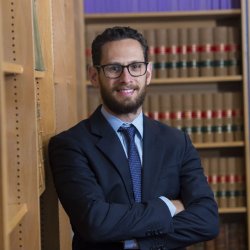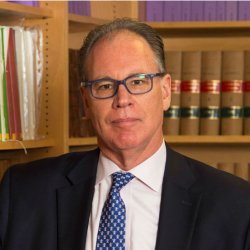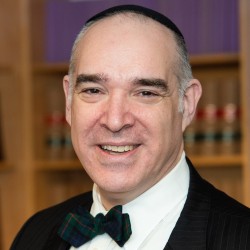Celebrating World Philosophy Day 2020
To commemorate World Philosophy Day on 19 November 2020, we spoke to academics across the Surrey Centre for Law and Philosophy and asked them some of the toughest philosophical questions.
If you could teach everyone in the world one concept, what concept would have the biggest positive impact on humanity?
Dr Kenneth Ehrenberg: “Teaching people a concept doesn’t get them to believe in it or practice it. So, we need a concept for which merely learning it has an unavoidable positive impact. Perhaps confirmation bias.”
Prof Dennis Patterson: “Empathy.”
Dr Alex Leveringhaus: “The concept of tolerance, because it helps everyone get along. To be tolerant means that one does not interfere with another person’s conduct, especially if one thinks the person in question is wrong or mistaken. Tolerance allows us to agree to disagree. It is the building block of peaceful coexistence.”
Prof Alex Sarch: “That people are not defined by the worst thing they have done.”
Does knowledge have intrinsic value, or does it need to have a practical use to have value?
Dr Kenneth Ehrenberg: “This question assumes a false dichotomy. Knowledge can be good for the sake of something else that is still not practical. Some mathematical and scientific knowledge is likely of this kind.”
Prof Dennis Patterson: “Both.”
Dr Alex Leveringhaus: “While it is often said that knowledge should be pursued for its own sake because it is inherently valuable, it always has practical value, too. It allows us, ultimately, to understand the world, the universe and our place in both.”
Prof Alex Sarch: “Knowledge of important questions definitely has intrinsic value, though what counts as an important question depends a bit on what we can find practical uses for.”
Is there a limit to what humans can create through technology and science?
Dr Kenneth Ehrenberg: “Yes. We can work around laws of nature but not break them outright. We may learn that earlier understandings of these laws were mistaken. But so long as we understand them as laws of nature, they are a limit on what we can create.”
Prof Dennis Patterson: “No.”
Dr Alex Leveringhaus: “One limit is the creation of a good society. Surely, we want our societies to be prosperous and advanced. And science and technology secure this goal. But, ultimately, the point of a good society is that it is just. An advanced but unjust society is not worth living in.”
Prof Alex Sarch: “Nope.”
Can a society exist without laws?
Dr Kenneth Ehrenberg: “Yes, if you’re referring to our standard understanding of municipal law. But it would have to be a very small and homogeneous society. An autocrat issuing individual directives to each person would not count as law under our current theories.”
Prof Dennis Patterson: “Absolutely not.”
Dr Alex Leveringhaus: “Thomas Hobbes famously thought not. But the question goes further. Any collection of individuals who seek rules to regulate their conduct towards each other could be said to have laws. Yet, as Hobbes knew, the real question is whether society could exist without a common authority to enforce said laws.”
Prof Alex Sarch: “Definitely not, unless you think a lone individual living off by themselves can count as a ‘society’.”
Regarding World Philosophy Day 2020, Professor Alex Sarch commented: “With increased uncertainty and a global pandemic raging, it’s now more important than ever to remember to step back and think about some of the bigger questions we all share as human beings. Questions like: ‘What is truth?’, ‘What is ultimately worth pursuing in life?’ and ‘What is a just society?’.
“Philosophy challenges us to ask what really matters and compels us to think critically and rigorously, about the most difficult questions we face about ourselves and the world we inhabit. Taking a logical and rigorous approach to exploring difficult existential, conceptual and moral questions is a crucial part of a rich university education, and it is a core component of how we teach law and engage with timely social and ethical issues within the School of Law.
“World Philosophy Day is one great opportunity to step back and remember the big questions that bind us all together.”
Discover our LLB in Law (Philosophy, Politics and Law Pathway).







